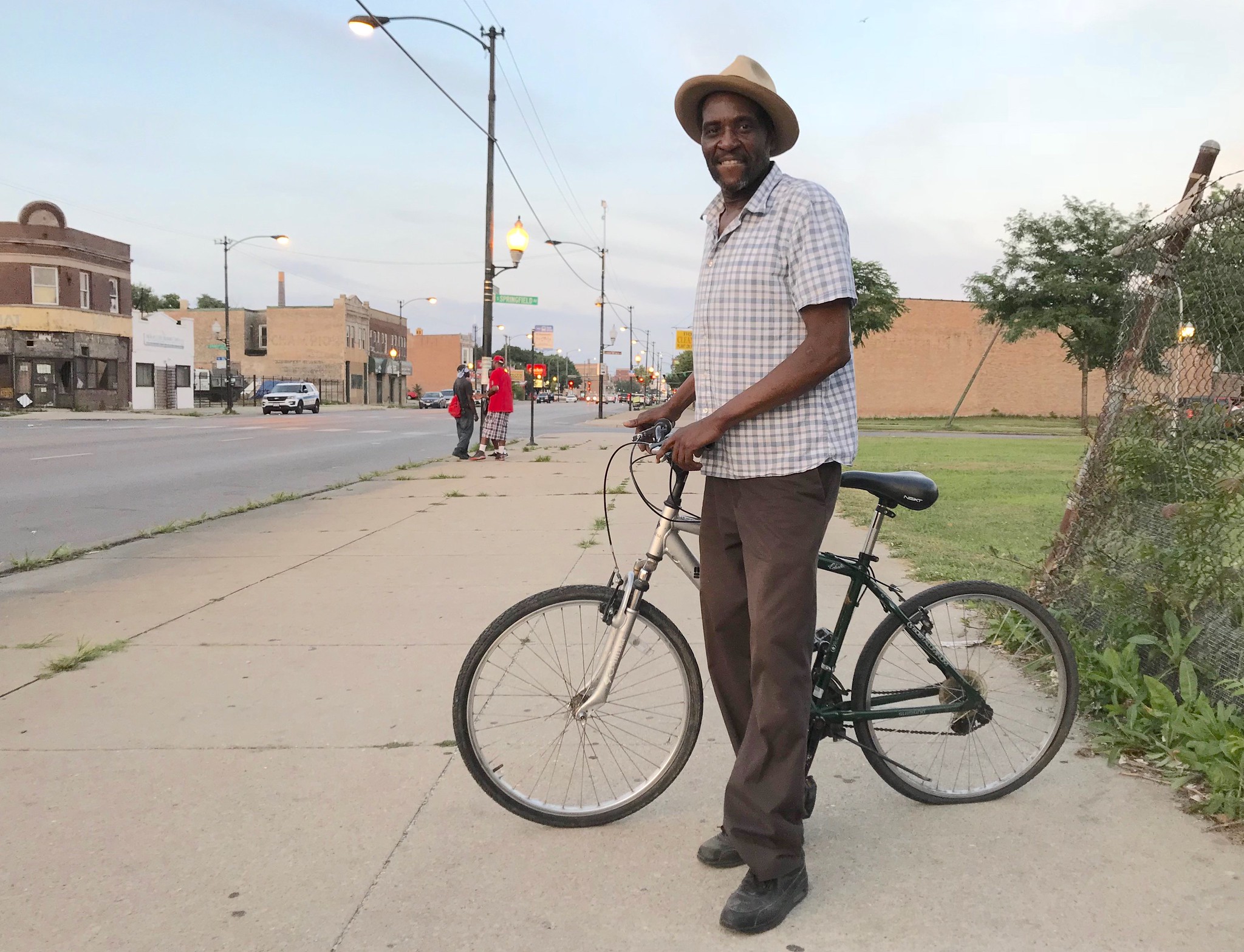As the leaders of Black- and Latino-led bike groups like Slow Roll Chicago and Bronzeville Bikes have noted, our city's lower-income communities of color stand to gain the most from the mobility, health, and economic benefits of cycling. So it was disturbing when a 2017 investigation by Chicago Tribune transportation reporter Mary Wisniewski found that the Chicago Police Department was writing exponentially more tickets for cycling infractions in some African-American communities compared to majority white ones. This enforcement practice was discouraging cycling in the very neighborhoods where the city should be encouraging it.
A 2018 Tribune update on the issue found that, despite city officials' promises to Black advocates, led Slow Roll's Oboi Reed (now leading Equiticity), to address the issue, there were still huge racial disparities. For example, during the same nine-month period, police wrote 397 bike tickets in low-income, majority-Black North Lawndale while only issuing five citations in affluent, majority-white Lincoln Park. The total number of bike tickets had fallen somewhat, from 4,158 citations in 2016 to 3,577 in 2017, a 14-percent decrease.
That summer, CPD director of public engagement Glen Brooks announced the results of a police analysis of 3,300-plus sidewalk riding tickets, which confirmed what the advocates suspected. The data showed that the racially skewed ticketing was due to police using traffic enforcement, including bike ticketing, as a violence-prevention strategy in high-crime areas, because the stops facilitate searches for illegal guns and other contraband.
Brooks indicated that the department didn't plan to stop conducting zero-tolerance bike enforcement in Black neighborhoods, while writing few tickets in white ones. But criminal justice reform and civil rights advocates responded that such policies are counterproductive to reducing violence because they breed distrust of the police.
Thankfully there was some good news earlier this week, as Wisniewski reported that the number of bike tickets written citywide dropped by almost 50 percent from 2016 to 2018, with only 2,196 citations written last year. And as of June 23 of this year, officers had written fewer than 600 tickets, which means we were on track for even fewer tickets than 2018 by the end of this year.
The downside of the new report is that over 50 percent of last year's tickets were still written in Black communities on the South and West sides, even though Chicago is less than a third African-American. Brooks confirmed to Wisniewski that the police are still mostly writing bike tickets in a misguided effort to fight violent crime in communities of color, rather than to promote traffic safety, stating "No one told anyone to stop writing tickets."
But at least they're doing it a lot less often. An extreme example of that is the Black, low-income community of Austin, which saw 417 bike tickets in 2016, but a mere 36 citations in 2019, Wisniewski reported.
She also found something of a shift in the locations where the most bike tickets are being written. While all of the top-ten community areas for citations in 2016 were majority-Black or majority-Latino, in 2018 the majority-white Uptown and Near North Side communities made that list. Uptown has one of the highest violent crime rates of Chicago's white-majority neighborhoods, which may explain why police did a large number of bike stops there.
And the high number of tickets written last year in the Near North Side, which has a high density of Divvy stations, may have been due to CPD efforts to recover stolen bikes during a wave of Divvy thefts that summer. Wisniewski reported that the number of tickets in that community skyrocketed from 84 in 2016 to 164 in 2018, although only 32 were written by late June of 2019.
But even in that majority-white area, there was a racial disparity at play last year. My own research found that otherwise-law-abiding Black cyclists were about three times as likely to be ticketed for sidewalk riding downtown in the summer of 2018 as their white counterparts. (Since Divvy reinstalled a missing dock security component in all its stations late last year, the theft crisis seems to have largely subsided, although there were some reports of stolen Divvies this summer.)
Once again, Wisniewski deserves the bike community's thanks for shining a light on one of Chicago's most pressing transportation equity issues. It's encouraging that the CPD seems to be easing up on its racist ticketing practices.
But as long the police are still targeting African-American neighborhoods for bike tickets as a wrongheaded anti-crime strategy, it's clear there's still plenty of room for improvement. Therefore, those of us who generally aren't affected by unfair ticketing crackdowns have a responsibility to support the work of Black cycling advocates as they continue to fight to level the playing field.
Read this week's Chicago Tribune report on bike ticketing here.




